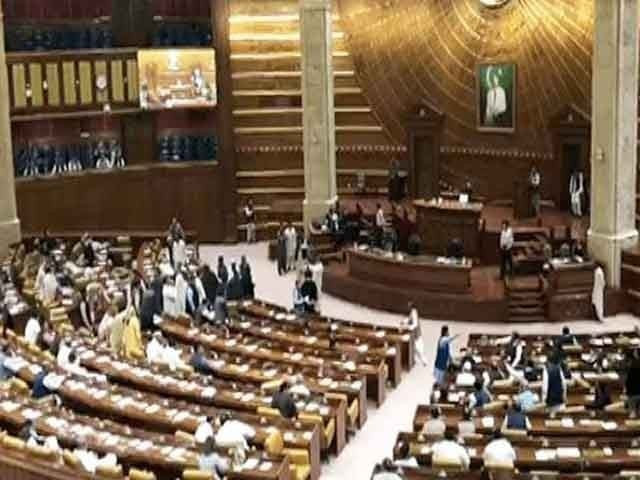Punjab Assembly's special committee approves use of five languages in house
Committee also allows access to assembly through public petitions

A special committee of the Punjab Assembly, led by Speaker Malik Muhammad Ahmad Khan, approved on Thursday amendments allowing lawmakers to address the House in English, Punjabi, Saraiki, Potohari, and Mewati in addition to Urdu.
This enhances accessibility for constituents who speak these languages, fostering a more representative and responsive legislative body. The change reflects the multilingual nature of the province, enabling legislators to communicate and fully participate in legislative discussions effectively.
The speaker stated that recognizing and incorporating regional languages into official proceedings also demonstrates cultural respect and acknowledgment of the linguistic heritage of Punjab, thereby strengthening the connection between the assembly and the people.
Another significant approval by the committee was the grant of suo motu powers to standing committees of the Punjab Assembly.
Read more: Punjab Police trace ‘90 fugitives in K-P’
This modification empowers committees to initiate examinations on their own accord, improving their ability to address urgent issues promptly without waiting for prior approval, Khan maintained. It enhances the committees' effectiveness in overseeing government actions and holding them accountable, he added.
This amendment reinforces the role of standing committees in maintaining transparency, accountability, and robust legislative oversight, ultimately strengthening the governance framework of the Punjab Assembly.
Additionally, the committee approved access to the assembly through public petitions. The speaker informed that this mechanism allows citizens to present their views on bills, pending matters, or issues of public interest directly to the House.
Khan stated that the committee believes that this practice will enhance public engagement in legislative processes, increase transparency and accountability of the assembly, and facilitate direct public input on matters of general interest.
He further said that this encourages a more inclusive and participatory democracy by giving citizens a direct channel to influence government policy and legislative outcomes. This amendment strengthens the democratic framework and fosters a more engaged and informed citizenry, he added.
The speaker said the committee's objective was to review the Rules of Procedure of the Provincial Assembly of Punjab 1997 and propose amendments to align them with the rules and best practices of sister legislatures in Pakistan, adding that all amendments approved by the committee will require final approval from the assembly.
Khan also emphasized the crucial role of parliamentary committees in the functioning of the system, ensuring a system of checks and balances. He commended advocate Usama Khawar Ghumman for his efforts regarding the amendments to the Rules of Procedure of the Assembly.


















COMMENTS
Comments are moderated and generally will be posted if they are on-topic and not abusive.
For more information, please see our Comments FAQ